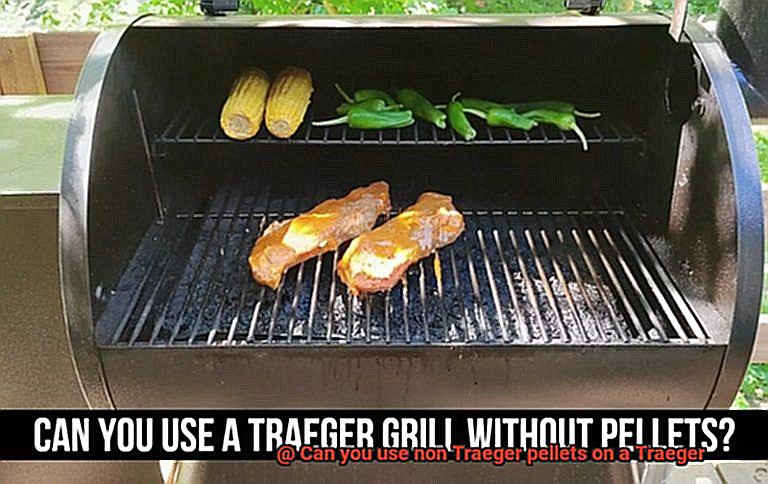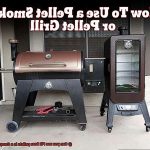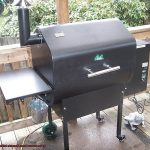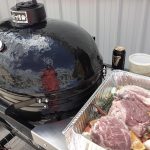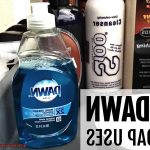Are you a grilling enthusiast who loves to cook outdoors on your Traeger grill? If so, you know that using Traeger pellets can be costly, especially if you’re cooking regularly. That’s why many people ask the question – can you use non-Traeger pellets on a Traeger grill?
Some die-hard fans might argue against it, but the answer is YES. You can absolutely use non-Traeger pellets on a Traeger grill. However, there are a few things you need to keep in mind before you start experimenting.
Firstly, Traeger pellets are specially designed to work with Traeger grills. They’re made from natural hardwood that burns evenly and maintains consistent temperature levels. Non-Traeger pellets may not meet this standard, which could impact the taste and quality of your food.
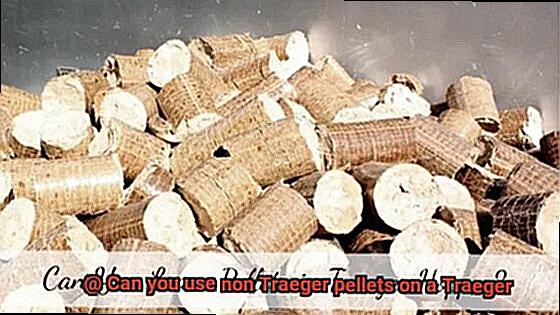
Secondly, using non-Traeger pellets might void your warranty. Traeger grills are engineered to work with their own brand of pellets. Using other brands could cause damage to the grill that won’t be covered by the warranty.
That being said, if you’re willing to take the risk and save some money by using non-Traeger pellets on your grill, go for it. Just make sure to choose high-quality brands that use 100% natural wood and avoid flavored pellets. In the end, it all comes down to personal preference, budget, and your willingness to take risks when it comes to outdoor cooking.
Contents
What are Traeger Pellets?
Traeger pellets are the perfect fuel source for grilling and smoking on a Traeger grill. They are made from 100% natural hardwood and come in a variety of flavors, including hickory, mesquite, apple, and cherry. These compressed sawdust and wood shavings are sourced from sustainable forests and combined with natural oils and binders to create the pellets.
One of the unique features of Traeger pellets is that they are food-grade pellets, making them safe to use in cooking and grilling. Unlike other types of fuel, Traeger pellets do not contain any harmful chemicals or additives, ensuring a healthier grilling experience.
The all-natural composition of Traeger pellets ensures a consistent burn and flavor, making them a popular choice among grill enthusiasts. The pellets are packaged in 20-pound bags, making them easy to store and use.
While it is possible to use non-Traeger pellets on your Traeger grill, it’s important to note that not all wood pellets are created equal. Non-Traeger pellets may contain fillers or binding agents that could affect the flavor of your food. Additionally, using non-Traeger pellets on your Traeger grill may void your warranty since Traeger grills are designed to work best with Traeger pellets.
If you decide to use non-Traeger pellets, make sure to choose high-quality pellets made from 100% natural hardwood for the best results. However, it’s important to consider the quality of the pellets and how they may affect the flavor and performance of your food before making a decision.
Can You Use Non-Traeger Pellets on a Traeger Grill?
To start, it’s important to understand that Traeger grills are designed to work best with Traeger pellets. These pellets are made from pure hardwood and have been specifically crafted with Traeger grills in mind. They produce optimal smoke flavor and heat output, giving your food that signature Traeger taste. However, using other types of pellets may result in a different flavor profile or inconsistent cooking temperatures.
Despite this, many people have had great success using non-Traeger pellets on their Traeger grills. Some brands offer unique flavors and blends that can’t be found in Traeger’s selection. Plus, Traeger grills have a wide temperature range and can accommodate a variety of pellet types.
But before you go out and buy any old pellet brand, there are some things to consider. First and foremost, using non-Traeger pellets may void your grill’s warranty. The warranty explicitly states that only Traeger-brand pellets should be used with their grills. If something were to go wrong with the grill and it was found that non-Traeger pellets were used, the warranty may not cover the damages.
Another important consideration is the quality of the pellets being used. Cheaper or lower quality pellets may contain fillers or additives that can damage the grill or produce unpleasant flavors. It’s recommended to choose high-quality, all-natural pellets from a reputable brand to avoid any potential issues.
Pros and Cons of Using Non-Traeger Pellets
Well, the answer is not so straightforward. There are pros and cons to consider, and as an expert in this field, I’m here to break them down for you.
Let’s start with the positives. The first advantage is cost. Traeger pellets can be quite pricey, so opting for a less expensive brand can save you money in the long run. Furthermore, non-Traeger pellets offer a wider range of flavors and wood types to choose from. This means you can experiment with different flavors and find the perfect one for your taste preferences. Imagine the possibilities.
Another benefit of using non-Traeger pellets is their availability. While Traeger pellets may not be readily available in all areas, other brands can be found at many hardware stores, home improvement stores, and online retailers. This convenience makes it easier to find the right pellets without having to go out of your way.
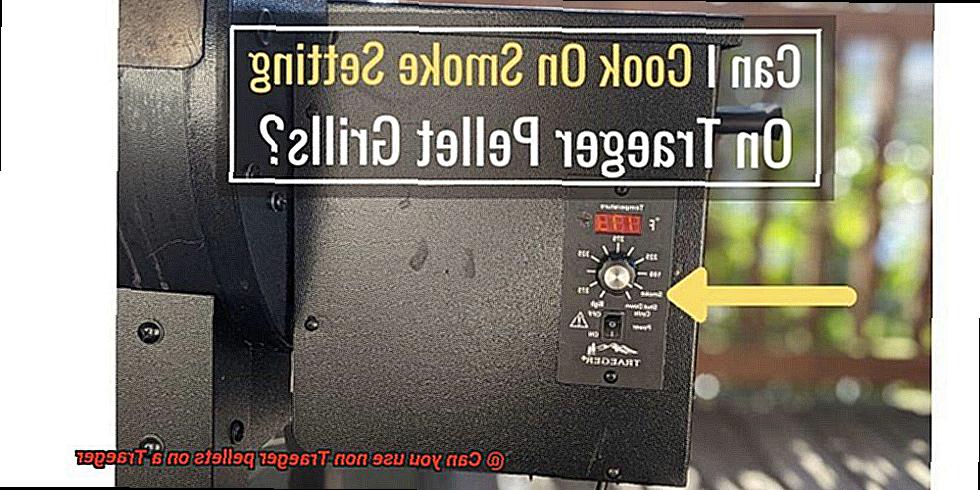
However, before you get too excited about this cost-saving option, there are some potential drawbacks to consider.
One concern is the quality and consistency of the pellets. Some brands may use lower-quality wood or additives that can affect the flavor and performance of your grill. That’s why it’s essential to do your research and read reviews before choosing a brand to ensure that you’re getting a quality product.
Another issue is compatibility with your Traeger grill. While many non-Traeger pellets may work just fine, others may not burn as efficiently or produce as much smoke as Traeger pellets. This can result in uneven cooking or less flavorful food – no one wants that.
In summary, using non-Traeger pellets on a Traeger grill can be a viable option for those looking to save money or try different flavors. However, it’s crucial to choose a reputable brand and be aware of any potential compatibility issues.
To help you make an informed decision, here’s a quick list of pros and cons:
Pros:
- Cost
- Wide range of flavors and wood types
- Availability
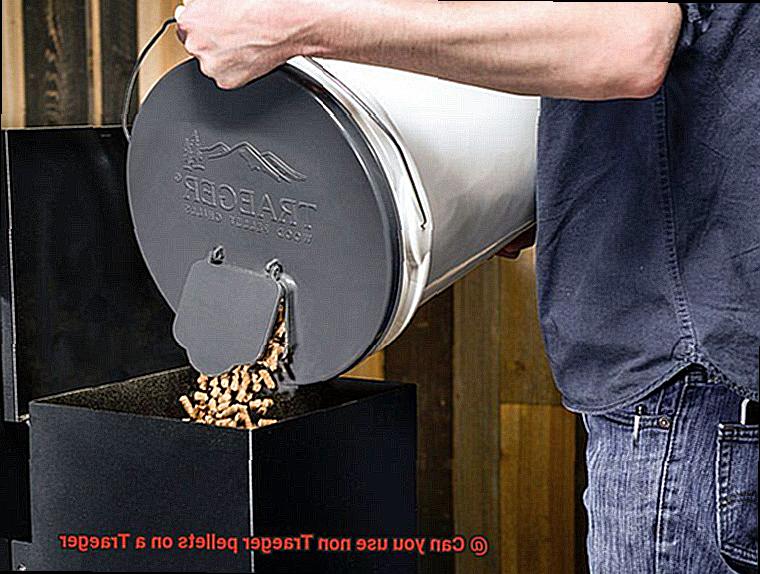
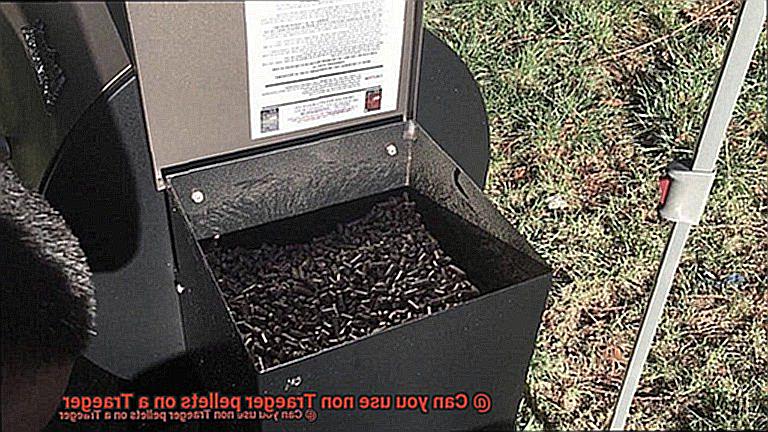
Cons:
- Quality and consistency concerns
- Compatibility issues with your grill
Quality of Non-Traeger Pellets
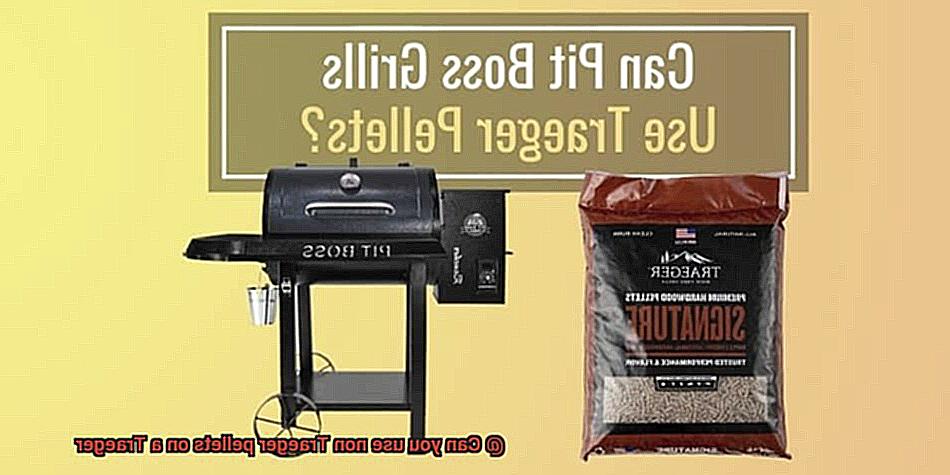
It’s crucial to choose high-quality pellets to achieve delicious results every time.
Not all pellets are created equal. Cheaper pellets may contain fillers, binding agents, or even sawdust from non-food-grade wood, leading to harsher smoke and a compromised taste. Pellets made from 100% hardwood with no additives or binders are the way to go for a premium grilling experience.
Moisture content is another important factor to consider when choosing pellets for your Traeger grill. Too much moisture can cause problems with your grill’s auger and firepot, while too little moisture can lead to quick burning and less smoke production. Look for pellets with a moisture content of around 6-8% to ensure optimal performance.
Choosing the right type of wood is also essential when opting for non-Traeger pellets. Different woods offer different flavors that complement specific types of food. For instance, hickory and mesquite are ideal for beef and pork, while applewood and cherry add a sweet touch to poultry and fish.
Performance of Non-Traeger Pellets
Attention all grill masters. Are you ready to venture beyond Traeger pellets and experiment with non-Traeger options on your trusty Traeger grill? Before you do, let’s delve into the performance of non-Traeger pellets and what you need to know to ensure your food is just as delectable as it would be with Traeger pellets.
First and foremost, it’s important to recognize the potential pitfalls of using non-Traeger pellets. One common issue is that they may not burn as cleanly as Traeger pellets, which can lead to increased ash buildup in your grill. This not only affects the temperature and airflow inside the grill but also impacts the cooking process. Moreover, non-Traeger pellets may not come from the same high-quality wood as Traeger pellets, which can significantly alter the flavor and aroma of your food.
However, don’t despair yet. Some non-Traeger pellet brands have proven to perform exceptionally well on Traeger grills. These brands use premium quality woods and employ manufacturing processes that result in clean-burning, flavorful pellets. Nevertheless, it is critical to conduct thorough research and read reviews before purchasing non-Traeger pellets to ensure they are compatible with your grill and will provide the desired results.
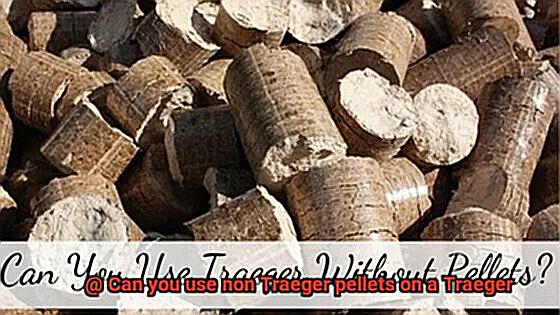
So, what does this mean for your grill game? It means that while using non-Traeger pellets on a Traeger grill is possible, you must be cautious about the quality and performance of those pellets. Opt for high-quality hardwood pellets with the right moisture content and wood type to elevate your grilling game and impress your taste buds with mouth-watering results.
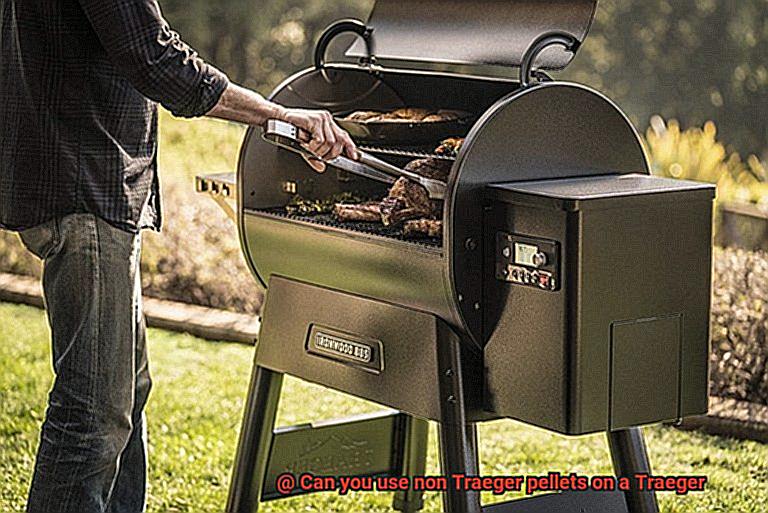
To summarize, when it comes to using non-Traeger pellets on a Traeger grill, performance is paramount. Here are some key considerations to keep in mind:
- Look for high-quality hardwood pellets made with premium woods.
- Ensure the moisture content and wood type are compatible with your grill.
- Read reviews and do your research before purchasing non-Traeger pellets.
Temperature Control with Non-Traeger Pellets
With a little experimentation and some expert tips, you’ll be grilling up perfectly cooked meals in no time.
First things first, let’s address the concern about inconsistent cooking results. Different types of pellets can burn at different rates and produce varying levels of heat. However, there’s no need to fret because achieving accurate temperature control with non-Traeger pellets is still possible.
To start off on the right foot, invest in a high-quality digital thermometer to monitor the temperature inside your grill. This will ensure that the temperature remains consistent throughout the cooking process, regardless of which type of pellets you are using.
Next, adjust the settings on your Traeger grill to match the type of pellets you are using. If you’re using hardwood pellets that produce a lot of heat, turn down the temperature slightly to avoid overcooking your food. Alternatively, if you’re using softer fruitwood pellets that burn at a lower temperature, increase the temperature setting slightly to ensure your food cooks thoroughly.
But how do you know which type of pellet to use? That’s where experimentation comes in. Try out different pellet types and adjust your settings until you find the right combination for your specific needs. Whether it’s mesquite for a bold flavor or hickory for a smoky taste, there’s a pellet out there for everyone.
Warranty Considerations When Using Non-Traeger Pellets
While the answer isn’t straightforward and depends on the specific terms of your warranty agreement, there are some factors to consider.
Firstly, it’s worth noting that Traeger grills are specifically designed to work with Traeger pellets. Using non-Traeger pellets may result in varying levels of smoke flavor and heat output, which could ultimately impact the performance of your grill.
So, what about warranty considerations? According to Traeger’s official stance, using non-Traeger pellets won’t void your warranty. However, any damage caused by their use may not be covered under warranty. As such, it’s crucial to read your warranty agreement carefully to understand what is and isn’t covered. Some warranties may exclude damage caused by the use of non-Traeger pellets explicitly, while others may have general exclusions for improper use or maintenance.
When it comes to using non-Traeger pellets, quality is key. Low-quality pellets may contain fillers or additives that could damage your grill or affect the flavor of your food. Always choose high-quality pellets that are appropriate for use in a wood pellet grill.
In summary, while it is possible to use non-Traeger pellets on a Traeger grill without voiding your warranty, there are potential risks and limitations to consider. Here are some things to keep in mind:
- Traeger grills are designed to work best with Traeger pellets.
- Any damage caused by non-Traeger pellets may not be covered under warranty.
- Read your warranty agreement carefully to understand what is and isn’t covered.
- Choose high-quality pellets that are appropriate for use in a wood pellet grill.
A3iZ1Mq6fks” >
Conclusion
To sum up, the question of whether you can use non-Traeger pellets on a Traeger grill can be answered with a yes, but it’s not as simple as that. While Traeger pellets are specifically designed to work seamlessly with Traeger grills and provide consistent temperature levels and even burning, they come at a premium price. On the other hand, opting for non-Traeger pellets can save you money and give you access to a wider range of flavors and wood types to choose from.
However, before you jump into using non-Traeger pellets, there are some caveats to keep in mind. Cheaper or lower quality pellets may contain fillers or binding agents that could damage your grill or produce unpleasant flavors. Additionally, using non-Traeger pellets might void your warranty since Traeger grills are designed to work best with their own brand of pellets.
If you do decide to go down the non-Traeger pellet route, make sure to choose high-quality brands that use 100% natural wood and avoid flavored pellets. It’s also essential to consider compatibility issues with your grill and adjust settings accordingly. The bottom line is that while using non-Traeger pellets on a Traeger grill is possible, it’s crucial to conduct thorough research and read reviews before making any decisions.
With proper care and consideration, experimenting with different pellet types can elevate your grilling game while still achieving accurate temperature control and delicious results every time.

